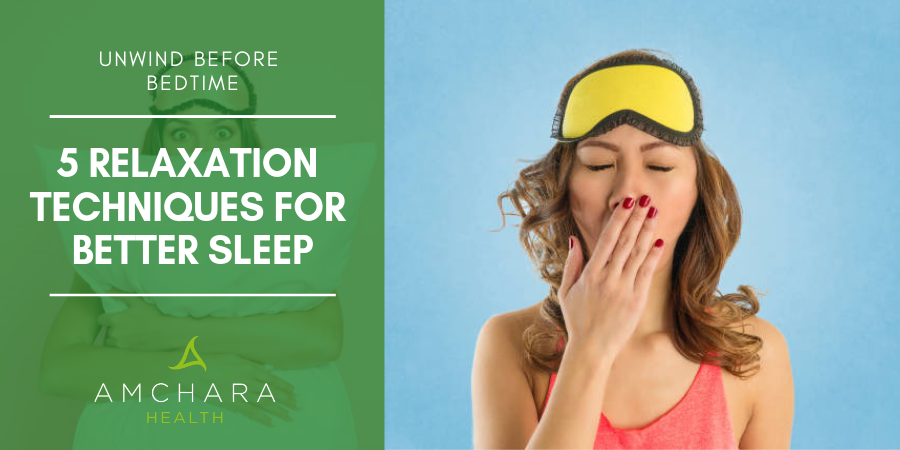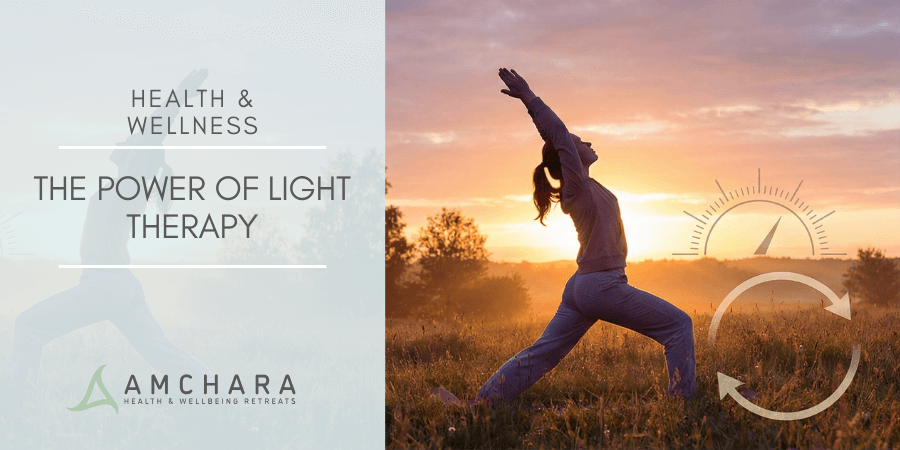Topics Covered in this article:
Modern life is time consuming and energy demanding – feeling stressed, overwhelmed and wrung out can be detrimental to sleep patterns.
It is common to reach for negative coping patterns and unhealthy ways to ‘unwind’ such as having a glass (or more) of wine, watching endless hours of TV or staying up too late.
It is essential for a good night’s rest to get rid of that ‘wired but tired’ feeling and to unwind properly before bedtime.
We always take an evidence-based approach and aim to provide you with actionable knowledge and tips to help you on your journey to optimal health.
Here we share our 5 proven ways to unwind before bedtime:
1. Progressive Relaxation
This involves the tensing of muscle groups in the body and then releasing to promote relaxation.
Studies show that progressive relaxation may help with sleep duration (1).
There are four important stages in progressive relaxation – being aware of tension in the body, tensing of the muscles, releasing the tension and noticing the relaxation after release.
Find somewhere comfortable and warm (you may wish to do this just before going to bed), some people find lighting a scented candle or playing soothing music enhances the relaxation.
Start by gently increasing tension in the forehead, hold for 5 seconds and then release – notice how different it feels.
Move down from the forehead to the jaw, and then to the neck and then to the shoulders.
Keep tensing and relaxing muscles until you have worked through the back, both arms, hands, legs and feet.
Aim to spend around 15-30 minutes a day.
You may find it takes you less time as you become more practised at progressive relaxation.
2. Breathing Techniques
Who needs lessons on how to breathe?
You may think that as you do it all day, every day, you don’t need help in this area.
Unfortunately, modern stresses and lifestyle have led to shallow breathing that originates more from the chest, rather than the belly, which is where it should be coming from.
Belly breathing can be great for stress relief, reducing tension and helping you to unwind before bedtime.
Get used to the belly breathing technique first and then move on to the timed breathing exercise (see below) for maximum support.
Belly breathing
- Sit or lie flat in a comfortable position.
- Put one hand on your belly just below your ribs and the other hand on your chest.
- Take a deep breath in through your nose, and let your belly push your hand out. Your chest should not move.
- Breathe out through pursed lips as if you were whistling. Feel the hand on your belly go in and use it to push all the air out.
- Do this breathing 3 to 10 times. Take your time with each breath.
- Notice how you feel at the end of the exercise.
4-7-8 breathing
- To start, put one hand on your belly and the other on your chest, as in the belly breathing exercise. Exhale fully.
- Take a deep, slow breath from your belly, and silently count to 4 as you breathe in.
- Hold your breath, and silently count from 1 to 7.
- Breathe out completely as you silently count from 1 to 8. Try to get all the air out of your lungs by the time you count to 8.
- Repeat 3 to 7 times or until you feel calm or fall asleep.
- Notice how you feel at the end of the exercise.
3. Meditation or Visualisation
Mindfulness and meditation are buzzwords at the moment.
Meditation, visualisation and mindfulness practices have been around for centuries and naturally formed part of day to day life.
Modern society seemed to have lost sight of the value of these practices, until recently.
Mindfulness and meditation courses are now being run through the NHS and there are numerous private online courses available.
Finding the right technique for you is important.
Some people find it hard to guide their own meditation and to keep their focus and so audio recordings of guided meditations or visualisations are popular.
These can be downloaded through apps like headspace, calm, buddhify and the mindfulness app.
Meditation can be carried out at any point during the day and can be beneficial for reducing the stress response and improving sleep quality (2).
Spending 20 minutes in the evening meditating can be a useful tool to assist with unwinding.
4. Hot Bath With Magnesium Salts
Having a hot bath in the evening can enhance relaxation and set the scene for a good night’s sleep.
Warming body temperature through soaking in hot water helps with the onset of sleep, as once you step out the tub and start to cool down this acts like a switch, stimulating the desire to sleep (3).
Adding essential oils like lavender, bergamot, ylang-ylang and clary sage to the water can enhance relaxation.
Magnesium bath salts can be useful as magnesium can be absorbed through the skin whilst soaking in the bath.
Magnesium is a mineral that eases muscle tension and can be beneficial during times of stress.
It is now thought that a large portion of the western population has low magnesium intakes.
Restoring magnesium levels can aid in unwinding at bedtime and prepare you for a good night’s rest (4).
5. Put the Kettle on
The British are a tea-loving nation and whilst caffeine-containing beverages should be avoided from around midday, a good relaxing cuppa an hour before bed is a great way to unwind.
Tea such as chamomile, valerian, passion flower and lemon balm are all useful for tackling the stress response, calming the nervous system and helping you to unwind.
Green tea deserves a mention here (at least the decaf version), as it contains an amino acid called theanine.
Theanine enhances alpha brain waves, which are normally seen is states of deep relaxation such as meditation or yoga (5).
Keeping on top of day to day stresses and strains and using specific techniques to help you to unwind before bedtime can enhance sleep pattern and quality.
Not only does this allow your stress response to be more controlled, but it also ensures you can make the most of your day and be in optimal health.
If you need further support for stress or relaxation a qualified healthcare practitioner can help you.
They can work with you to investigate aspects of your life that may be contributing to you stress and assist you in developing a personalised approach.
What are your personal tips for unwinding before bed?
Lets us know what works for you and why.
Please leave your comments below.
Kelly Rose DipION FdSc VN
READ THIS NEXT:
- Blog Post: 14 Ways To Sleep Better Naturally
- Blog Post: Sleep: The Impact on Hormones and Your Health
- Blog Post: Yoga And Meditation And The Benefits
- Blog Post: The Benefits of Reflexology





